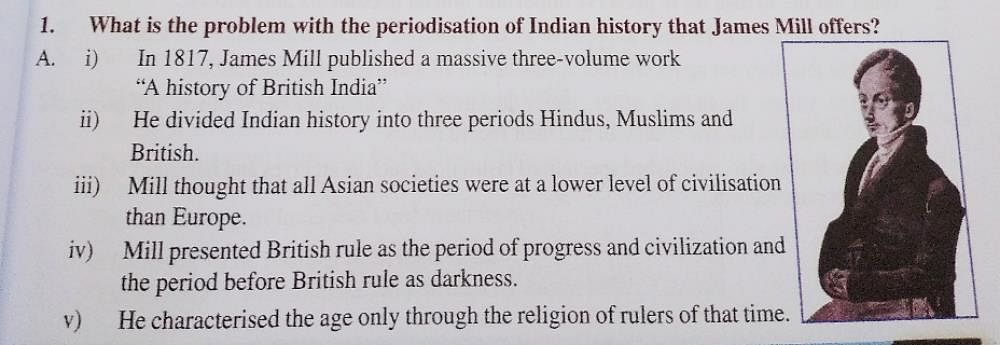Class 8 Exam > Class 8 Questions > Question answers of history of lesson no 1 st...
Start Learning for Free
Question answers of history of lesson no 1 studying modern period?
Most Upvoted Answer
Question answers of history of lesson no 1 studying modern period?
History of Studying Modern Period
Introduction
The modern period is a time in human history that began in the 16th century and continues to the present. It is characterized by significant changes in technology, politics, and culture.
Early Historians
The study of the modern period began in the late 19th century with the work of historians such as Leopold von Ranke and Thomas Babington Macaulay. These historians focused on political history and the great men who influenced it.
Social History
In the mid-20th century, a new approach to studying history emerged, known as social history. This approach focused on the experiences of ordinary people and how they were affected by the changes of the modern period. Social historians examined topics such as the rise of the middle class, the growth of cities, and the impact of industrialization.
Cultural History
In the latter half of the 20th century, another approach to studying history emerged: cultural history. This approach focused on the cultural and intellectual aspects of the modern period. Cultural historians examined topics such as literature, art, music, and popular culture.
Interdisciplinary Approaches
Today, there are many interdisciplinary approaches to studying the modern period. For example, historians may work with scholars from fields such as anthropology, sociology, and political science to gain a more comprehensive understanding of the period. Additionally, digital tools and technologies have opened up new avenues for research and analysis.
Conclusion
In conclusion, the study of the modern period has evolved over time, with new approaches and interdisciplinary methods continually emerging. By studying this period, we can gain a better understanding of the complex changes that have shaped our world today.
Community Answer
Question answers of history of lesson no 1 studying modern period?

Attention Class 8 Students!
To make sure you are not studying endlessly, EduRev has designed Class 8 study material, with Structured Courses, Videos, & Test Series. Plus get personalized analysis, doubt solving and improvement plans to achieve a great score in Class 8.

|
Explore Courses for Class 8 exam
|

|
Similar Class 8 Doubts
Question answers of history of lesson no 1 studying modern period?
Question Description
Question answers of history of lesson no 1 studying modern period? for Class 8 2024 is part of Class 8 preparation. The Question and answers have been prepared according to the Class 8 exam syllabus. Information about Question answers of history of lesson no 1 studying modern period? covers all topics & solutions for Class 8 2024 Exam. Find important definitions, questions, meanings, examples, exercises and tests below for Question answers of history of lesson no 1 studying modern period?.
Question answers of history of lesson no 1 studying modern period? for Class 8 2024 is part of Class 8 preparation. The Question and answers have been prepared according to the Class 8 exam syllabus. Information about Question answers of history of lesson no 1 studying modern period? covers all topics & solutions for Class 8 2024 Exam. Find important definitions, questions, meanings, examples, exercises and tests below for Question answers of history of lesson no 1 studying modern period?.
Solutions for Question answers of history of lesson no 1 studying modern period? in English & in Hindi are available as part of our courses for Class 8.
Download more important topics, notes, lectures and mock test series for Class 8 Exam by signing up for free.
Here you can find the meaning of Question answers of history of lesson no 1 studying modern period? defined & explained in the simplest way possible. Besides giving the explanation of
Question answers of history of lesson no 1 studying modern period?, a detailed solution for Question answers of history of lesson no 1 studying modern period? has been provided alongside types of Question answers of history of lesson no 1 studying modern period? theory, EduRev gives you an
ample number of questions to practice Question answers of history of lesson no 1 studying modern period? tests, examples and also practice Class 8 tests.

|
Explore Courses for Class 8 exam
|

|
Suggested Free Tests
Signup for Free!
Signup to see your scores go up within 7 days! Learn & Practice with 1000+ FREE Notes, Videos & Tests.

























